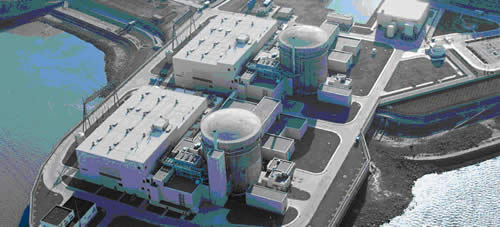
Update: RMTL has a new website | The Research group
The Nuclear Materials group at Queen's is carrying out world leading research in the area of structural materials for nuclear power applications. The group has domestic collaborations with McGill University, the University of Western Ontario, the University of Toronto and McMaster University, Atomic Energy of Canada Ltd., Kinectrics Inc., Nu-Tech Precision Metals Inc. Bruce Power and Ontario Power Generation Inc. and international collaborations in the USA, the UK, France, Argentina, Hong Kong and Australia. The group published ~30 refereed journal papers in the last 2 years (2011 and 2012). The Nuclear Materials group is supported by an extensive research portfolio including a dozen active grants from NSERC, ORF, CFI and OCE totalling a $4.7M investment at Queen's, with the project totals, including spending at partner institutions, of ~$11M (figures do not include overheads). See more details of the research being carried out by individual group members.
The group is presently leading the construction of a $17M ion accelerator facility to simulate the radiation damage that occurs in materials inside a reactor. More details of the planned facility.
Present members of the group:
Previous members of the group and where they went:
The NSERC/UNENE/Nu-Tech Industrial Research Chair in Nuclear Materials was established in 2002 at the initiative of the Canadian Nuclear Industry, with Prof. Holt as the Senior Chair. In 2004 Prof. Daymond joined the group as Associate Chair, before becoming Senior Chair in 2012 following on from Prof. Holt's retirement. The Chair was the first in a series of seven chairs established as part of the University Centre of Excellence in Nuclear Engineering (UNENE) sponsored by Ontario Power, Bruce Power, the CANDU Owners Group COG and the Canadian Nuclear Safety Commission. The main thrusts are to supplement the R&D capabilities of AECL, and Kinectrics Inc. (formerly Ontario Hydro Research) and to train new highly qualified staff to work in engineering or research and development, both to manage and extend the life of existing plants, and to develop new reactors. The Chair program also offers the opportunity for part or all of a student's research to be carried out at the industrial nuclear R&D laboratories, co-supervised by the staff of those laboratories, either during a paid work term, or as a full time employee.
The Canadian nuclear industry currently employs more than 30,000 workers and is quickly expanding to meet domestic and international demands of current and future refurbishment projects totaling ~B$10. Canada is expected to have sustained future reliance on clean, environmentally sound and reliable nuclear power as base load electricity generation. It is also expected that Canada will supply reactors to what is now a rapidly expanding international market. This necessitates the development of advanced nuclear reactor concepts (the Advanced CANDU Reactor (ACR) and the Super Critical Water Generation 4 Reactor (SCWR) that will be designed in Canada with major manufacturing input from Canada's nuclear industry. These reactors operate at higher temperatures and will require the use of new materials that are presently not employed in nuclear reactors.
Useful information about nuclear technology in Canada can be found at www.nuclearfaq.ca.